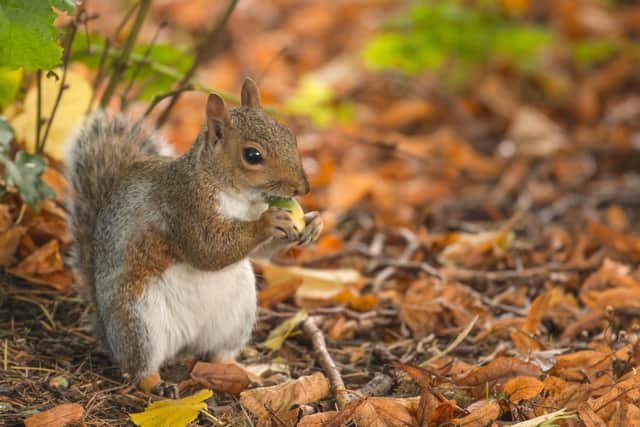‘Wilder Horsham District’ project to help wildlife thrive


The council will create a £571,000 green reserve in its 2020/21 budget to pay for the Wilder Horsham District programme, including £30,000 per year to replace trees on council land which were lost to disease.
A report to a meeting of the cabinet said: “The partnership will focus on ensuring that wildlife thrives across Horsham district by creating networks and expanding habitats.
Advertisement
Hide AdAdvertisement
Hide Ad“In doing so, we hope to enhance nature across the district, therefore reversing the declines that have occurred over the


last few decades.”
Members were told the programme had four aims:
To help wildlife thrive;
To create protected networks of land to help habitats expand and species populations to increase;
To increase people’s awareness of the actions they can take to improve the natural environment; and
Making the most of opportunities to tackle climate change and reduce its impact on wildlife.
Advertisement
Hide AdAdvertisement
Hide AdLeader Ray Dawe said the partnership with the Sussex Wildlife Trust was a ‘tremendous initiative’ while Philip Circus (Con, West Chiltington, Thakeham & Ashington) added: “I’ve got enormous confidence we can take great steps forward working in conjunction with them.”
As well as the new trees, the green reserve will pay the salary and overheads for a full-time landscape advisor, costing £42,000 per year for five years, and a part-time community support post, costing £11,000 per year.
On top of that, there will be £30,000 per year to help parish councils and communities run their own wildlife projects, and a further £6,000 for events in years one and five.
Henri Brocklebank, of the Sussex Wildlife Trust, said: “This is the sort of relationships that conservationists and local authorities should be having and it sets a really good example within the county of how organisations can work together.”
Advertisement
Hide AdAdvertisement
Hide AdQuestions were asked about the amount of money being set aside for tree planting, with suggestions that they could be bought for less.
But members were told the new trees would be mature, which cost more than saplings.
Tricia Youtan (Con, Itchingfield, Slinfold & Warnham) said she was ‘encouraged’ that the plan was to use mature trees given that smaller ones were ‘very often prone to die within the first six months’.
She added: “I actually think it’s money well spent.”
The partnership will also link with Horsham’s Local Plan, highlighting areas where new housing developments could enhance wildlife. Where that was not possible, developers would pay for other sites to be enhanced to form part of a Nature Recovery Network.
Advertisement
Hide AdAdvertisement
Hide AdMs Brocklebank told the cabinet: “It’s been a really fantastic experience working with your officers working up what Wilder Horsham District could look like and seeing what the potential is.
“To have a district council that actually wants to be part of nature’s recovery and to do the very best it can in terms of creating an ecological network and looking internally at its own processes and policies, for us that’s an amazing opportunity which is why we’re really, really excited about the potential of this.”